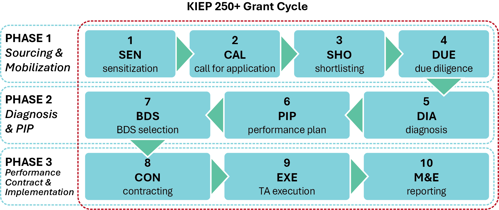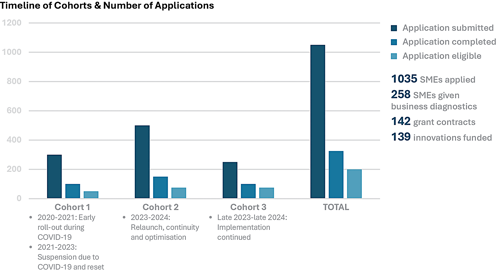As a result of KIEP 250+’s interventions, TakaTaka Solutions was able to collect waste faster, reach more customers and even create 84 new full-time jobs.
“Through KIEP, TakaTaka Solutions has improved its operations through digitisation and capacity building leading to higher productivity gains and greater competitiveness in the waste management sector,” a company representative said.
Another woman-led enterprise also in the circular economy sphere, Bottle Logistics recovers glass waste and creates a variety of products from the materials. KIEP 250+ helped them automate their glass sanitation process, significantly improving their productivity with the innovation: “Previously, we were doing the washing manually, and our capacity was limited to around 500,000 glass bottles we could wash in a month, Now, we’ve moved towards semi-automation, and our washing capacity’s increased to around one million bottles in a month.”


















